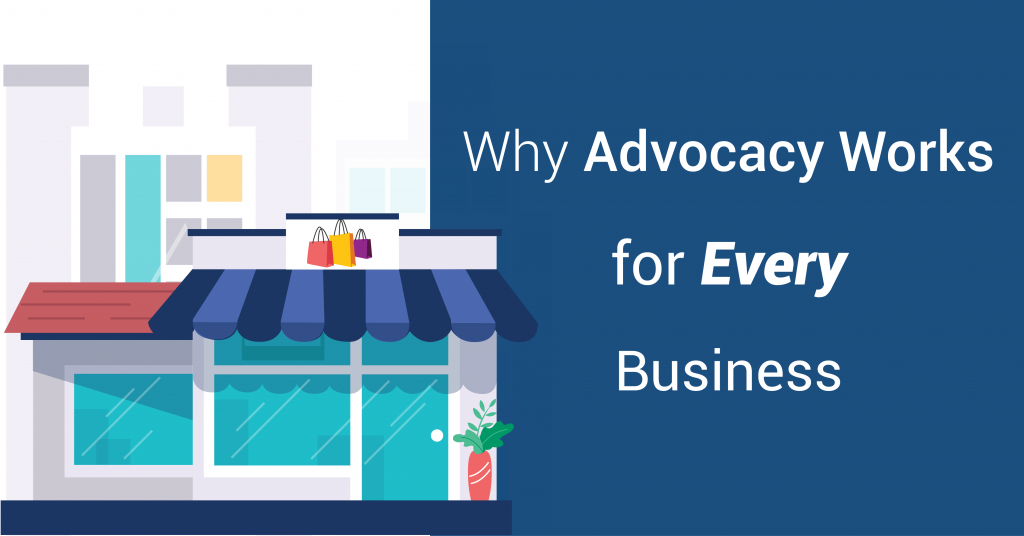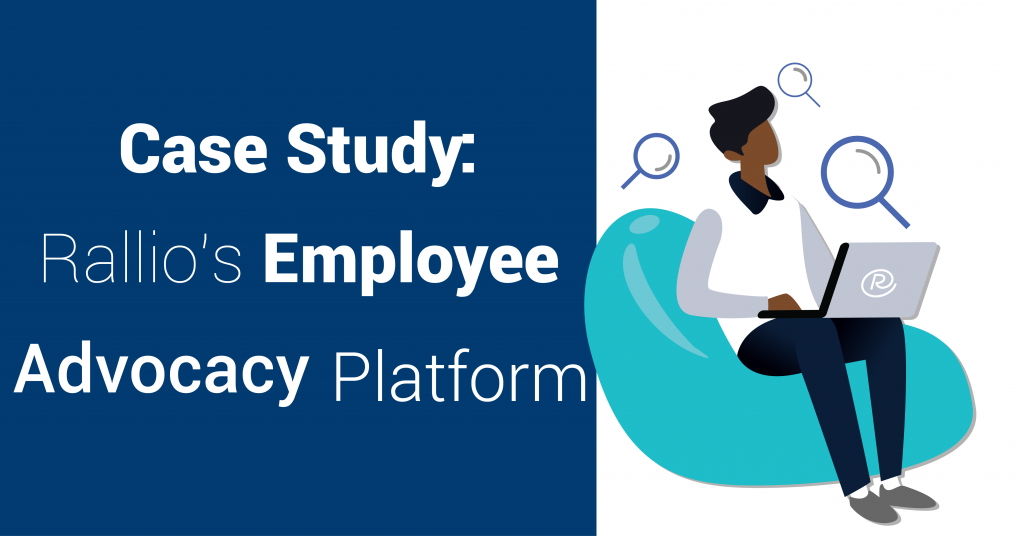You may have seen some of our recent articles on employee advocacy and how it can transform your team members into brand ambassadors. When implemented effectively, employee advocacy is, indeed, an effective way to spread brand awareness and broaden your impact on social media. Before you begin implementing an employee advocacy program, however, it’s important that you foster a culture of employee advocacy.
With this culture, your employees become willing participants in ambassadorship. A culture of advocacy will motivate employees to speak positively about your brand on social media. If you lack that kind of culture, they may be reluctant to share anything about your brand.
Related: Why Employee Advocacy Works for Even the Most Unusual Businesses

Why Does Employee Advocacy Matter?
Consider the ripple effect of creating a culture of employee advocacy, and you can see how important it is to foster this kind of environment at your company:
- If your employees feel satisfied and engaged, they’re more likely to do great work. They’ll have good things to say about you, both internally amongst themselves and externally on their personal social media profiles.
- If they post positively about your brand, their posts come across as believable and authentic, more so than your own branded content. Convince & Convert reports that a recommendation from a friend or family member makes 83% of Americans more likely to purchase that particular product or service.
- Furthermore, if employees do great work, they’ll deliver an extraordinary customer experience by way of great products, great services and great customer support.
- If your customers have an extraordinary experience, and if they see posts that are believable and authentic, they’ll be loyal to your brand — becoming brand ambassadors themselves.
- If both your employees and customers are happy, they’ll continue spreading the word, extending your reach and engagement exponentially. You’ll gain new followers, new customers, and even new employees when you’re actively recruiting.
It’s one big happy cycle that you need to have working for you in order to experience ongoing success. Can you see how important a culture of employee advocacy is now?
A Culture of Employee Advocacy Starts With Education
If your employees aren’t actively advocating for your brand on social media, it doesn’t necessarily mean they don’t want to. In some cases, they may simply lack the proper language and knowledge to share confidently. In order to inspire confidence, provide them with the tools they need. Here are some key points to keep in mind:
- Whether you’re onboarding new employees or working to educate existing staff, make sure you’re communicating your company’s core values and goals. Create internal programs that train your employees on your mission and vision, your product offerings and your competitive differentiators.
- Remember, it’s not just your sales staff that needs this information; every single employee should understand what you stand for (so they don’t “fall” when trying to communicate about your brand).
- The company’s “About Us” statement, which typically lives on your website and in any kind of communications about your brand, should be in writing and easily available to employees. Take the time to craft a company description that’s easy to understand and readily translated into talking points.
- Live your mission by fostering communication between team members and their direct supervisors. Regular check-ins can help to encourage questions and clarifications as well as address any challenges that employees might be experiencing.

Use Technology to Your Advantage
Once you’ve adequately educated your team about your mission, values and goals, the next step is setting them up for success. It’s not enough to have a culture of employee advocacy; you also need to equip your employees with the best technology to streamline the advocacy process.
While your employees are naturally using technology already to post on social media, you can improve your results even more with a technology like Rallio Activate. With Activate, not only can your employees become brand ambassadors, but you can also create reward programs to your exact specifications. You’ll have the ability to incentivize your workforce to submit their own images and videos for brand content or share your message across their own pages.
Put another way, a culture of employee advocacy is necessary for your advocacy program to work — but incentivizing employees will give them even more of a reason to pull out their phones and snap a few photos.
Here’s how it works:
- You incentivize employees with rewards programs that you create and collect assets into your brand’s image library.
- Employees are able to submit their own photos and videos to earn points, as well as publish your brand-approved content on their personal profiles.
- Your employees can take advantage of the available programs to start earning rewards. They’ll receive a push notification when a new program is available and reminders to participate before the program ends.
Simple as that!
To get an idea of how this process works for a real business, read through our case study we conducted with one of our clients, Pet Supplies Plus (PSP). Since the rollout of their limited mobile logins over two years ago on Rallio Activate, 3,395 PSP team members have been activated, equating to 173,513 images and videos submitted. Ultimately, these uploads have resulted in over 2,541,965 social media engagements (such as likes, comments, clicks and shares) from posts, which leveraged those assets that PSP otherwise would have not received.
If you’re curious how advocacy can work for your particular business, schedule a no-obligation demo to learn more. Just choose a spot on the calendar and we’ll make sure you get all the information you need.
In the meantime, why not start fostering a culture of employee advocacy at your company, starting with the guidelines above? You’ll be well on your way to a successful advocacy program and ready to make use of our technology for your own brand.
“Customers will never love a company until its employees love it first.” — Simon Sinek
